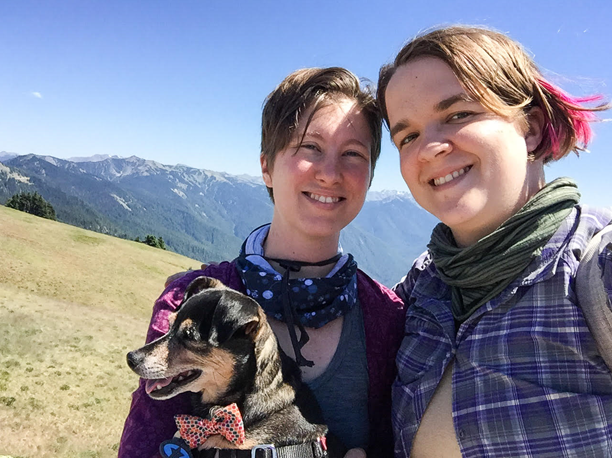
News + Events
I’ve lived in Seattle for five years with my wife, Brittany. I’m a software developer who loves to bicycle and cook. I’m also an organizer, but not in the traditional sense that people think of. You won’t often see me knocking on doors or with a megaphone in my hand leading chants.

Being part of two Social Justice Giving Projects has helped Brittany and me understand our best role as organizers and activists: we are part of this movement as engaged donors.
When we joined our first Giving Project with Social Justice Fund, it was within our first year of living in Seattle. I was fresh out of college, and we were encouraged to join by people in our community doing social justice work. Being part of the identity-based LGBTQ Giving Project was an intense, challenging, and rewarding way to start our donor activism.
The next year, the Economic Justice Giving Project was the first time I confronted the complexity of class and class identity. It was a safe space where I could explore my mixed class background and hear about others’ experiences, but it was a difficult process. I saw how we all made assumptions about people’s perceived class and privilege. Having cross class dialogue ripped those assumptions apart, and Brittany and I got to explore different kinds of roles young people with wealth have in this movement.
Having these conversations in multi-racial and gender variant spaces is tough. I realize that we have to be in these spaces and be uncomfortable because that’s how we stretch ourselves and grow.
Being part of Giving Projects, I’ve had two big takeaways:
- Giving more boldly. Fighting for a just society takes resources. My wife and I think about how much money we’re bringing in, factor in cost of living, and push our comfort level to give more.
- Trusting organizations to do the work. Community work led by those most impacted by the injustice is vital. I see my privilege as a donor, and I need to trust that leaders of the organizations I contribute to know how to best use my contributions to further their missions.
Overall, I’ve realized it’s okay to take risks. Allowing ourselves to be vulnerable in conversations about class and privilege opens us to new experiences and learning. Every time Brittany and I push our own limits to give more boldly, we keep realizing that we can give more to fund the work that needs to be done to create a just society.
Taking risks and making bold funding decisions in the Giving Projects has led us to develop a personal relationship with a few grantees that we probably wouldn’t have connected with otherwise. One grantee organization that we continue to fund and support is Got Green?